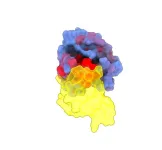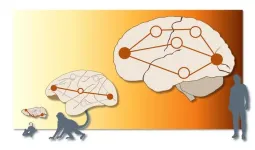15th annual horizon scan identifies 15 most pressing issues for conservation, including invertebrate decline and changing marine ecosystems
2023-12-18
(Press-News.org) Since 2009, the Cambridge Conservation Initiative has coordinated an annual horizon scan, a well-established method for predicting which threats, changes, and technologies will have the biggest impact on biological conservation in the following year. This year, the 15th horizon scan included 31 scientists, practitioners, and policymakers who developed a list of 96 issues, which they eventually narrowed down to the fifteen most novel and impactful. Their findings, publishing in the journal Trends in Evolution & Ecology on December 18, include topics related to sustainable energy, declining invertebrate populations, and changing marine ecosystems.
The fifteen topics identified by the scan include:
New sources of hydrogen for energy production, including seawater electrolysis
Decarbonized ammonia production for fertilizer and fuel using water microdroplets, graphite mesh, and nitrogen
Making food and animal feed with fish-like nutrients from autotrophic hydrogen-oxidizing bacteria
Indoor agriculture in urban environments using light-free artificial photosynthesis
Excessive usage of rock dusts to remineralize large amounts of carbon and put ecosystems at risk for heavy metal contamination
Earthworm populations to continue declining, especially in farmland and broadleaved woodland area ecosystems, potentially due to pesticides
Soil ecoacoustics, which project sounds like water moving through soil, poised to help monitor soil ecology and invertebrate populations
Wildfires to change climate patterns like El Niño by releasing trapped aerosols
Benchtop DNA printers, which can produce double-stranded DNA sequences on demand, to become increasingly advanced, widespread, and in need of regulation
New methods to measure a chemical’s toxicity before adverse impacts surface
Saudia Arabia’s planned “sustainable” ultra-tall skyscraper city to impact migratory birds
Sea urchins to continue dying off rapidly worldwide, potentially due to a protist pathogen, which could threaten tropical ecosystems
Testing methods to remove carbon dioxide from the ocean including using ocean fertilization, macroalgae, and rock injections
Rising temperatures in the twilight zone to disturb the ocean’s biological carbon pump
Melting Antarctic ice to alter deep sea ocean currents, reducing abyssal overturning by 40% by 2050
“The issues identified in this scan continue to reflect the juxtaposition between anthropogenic impacts on biodiversity and increasing technological capacity to mitigate those impacts,” write the researchers, led by conservationist William Sutherland (@Bill_Sutherland) of Cambridge University. “In some cases, new issues arise directly from efforts to mitigate other issues.”
The authors identify several common threads in the list of issues, including threats to marine ecosystems. They underscore the importance of recent marine policy initiatives to help address these threats while noting that these efforts will not help resolve the climate-related issues identified. They also discuss the continued importance of innovation in carbon capture and sustainable energy technologies.
“We anticipate continuing to highlight novel emerging impacts of climate change and technologies aiming to mitigate climate change and transition to more sustainable pathways in future horizon scans,” write the researchers.
###
This research was supported by funding from The Pew Charitable Trusts, the Natural Environment Research Council, and the Royal Society for the Protection of Birds.
Trends in Ecology & Evolution, Chang et al. “A horizon scan of global biological conservation
4 issues for 2024” https://www.cell.com/trends/ecology-evolution/fulltext/S0169-5347(23)00295-1
Trends in Ecology & Evolution (@Trends_Ecol_Evo), published by Cell Press, is a monthly review journal that contains polished, concise, and readable reviews and opinion pieces in all areas of ecology and evolutionary science. It aims to keep scientists informed of new developments and ideas across the full range of ecology and evolutionary biology—from the pure to the applied, and from molecular to global. Visit http://www.cell.com/trends/ecology-evolution. To receive Cell Press media alerts, please contact press@cell.com.
END
ELSE PRESS RELEASES FROM THIS DATE:
2023-12-18
Toothbrushing also associated with lower rates of ICU mortality, shorter duration of mechanical ventilation, and shorter ICU length of stay
Researchers say toothbrushing could be a cheap but effective way to help lower rates of hospital-acquired pneumonia
Researchers have found an inexpensive tool that may help reduce rates of pneumonia for hospitalized patients—and it comes with bristles on one end. A new study by investigators from Brigham and Women’s Hospital, a founding member of the Mass General Brigham healthcare system, and Harvard Pilgrim Health Care Institute ...
2023-12-18
As climate change redistributes terrestrial ecosystems across the globe, the world’s natural capital is expected to decrease, causing a 9% loss of ecosystem services by 2100. That’s according to a study of natural capital published today in the journal Nature led by scientists at the University of California, Davis, and Scripps Institution of Oceanography at UC San Diego.
Breathable air, clean water, healthy forests and biodiversity all contribute to people’s well-being in ways that ...
2023-12-18
About The Study: The results of this study raise concerns that benefit programs may add relative advantages for white children compared with Black and Hispanic children and contribute to racial and ethnic disparities in child protective services investigations. States’ eligibility criteria and distribution practices should be examined to promote equitable effects on adverse child outcomes.
Authors: Henry T. Puls, M.D., of Children’s Mercy Kansas City, is the corresponding author.
To access the embargoed study: Visit our For The Media website ...
2023-12-18
About The Study: The findings of this systematic review and meta-analysis of 15 randomized clinical trials with an effective population size of 2,786 patients suggest that daily tooth brushing may be associated with significantly lower rates of hospital-acquired pneumonia, particularly in patients receiving mechanical ventilation, lower rates of intensive care unit (ICU) mortality, shorter duration of mechanical ventilation, and shorter ICU length of stay. Policies and programs encouraging more widespread and consistent toothbrushing ...
2023-12-18
Researchers at the Centre for Genomic Regulation in Barcelona, Spain, and the Wellcome Sanger Institute near Cambridge, UK, have comprehensively identified the allosteric control sites found in the protein KRAS. These are highly sought after targets for drug development, representing secret vulnerabilities which can be exploited to control the effects of one of the most important causes of cancer. The study presents the first complete control map for any protein and is published today (18 December) in the journal Nature.
KRAS ...
2023-12-18
Research pioneer Dr. Daniel Drucker has much to be proud of, as the GLP-1-based diabetes drugs hailing from his early research are named 2023 breakthrough of the year by the Science Magazine.
Not only have millions of people with type 2 diabetes benefitted from GLP-1 agonists, but the drugs also produced wide-ranging health benefits beyond weight loss in two recent patient trials.
For years, GLP-1 agonists have been known to have a fortuitous side effect of improving metabolic health, but how this is regulated in the body remains unclear. Now Dr. ...
2023-12-18
Ecological restoration may save coral atoll islands from the rising seas of climate change, according to an international team of scientists, conservationists, and an indigenous leader.
While global carbon emission reduction is imperative, local measures could be the key to the islands outpacing sea levels, they argue today in the journal Trends in Ecology & Evolution.
“Far from being doomed, in their natural state most coral atoll islands could adapt to sea level rise”, says Dr Sebastian Steibl from the University of Auckland ...
2023-12-18
Researchers at the National Institutes of Health have published an atlas of zebrafish development, detailing the gene expression programs that are activated within nearly every cell type during the first five days of development, a period in which embryos mature from a single cell into distinct cell types. These diverse cells become tissues and organs that form juvenile fish capable of swimming and looking for food. The findings are published in Developmental Cell.
“Perhaps surprisingly, tiny zebrafish provide us with significant insight ...
2023-12-18
Estimated to be worth USD 50.1 billion by 2030, a Surrey team of researchers has uncovered the potential of the growing dog-friendly travel market. The Covid-19 pandemic drove an increase in UK household dog ownership, creating a need for tourism providers to adapt to accommodate these four-legged family members.
The Surrey team set out to understand why people travel with their dogs, how they feel about it, and what challenges they face doing so.
Lori Hoy, PhD Researcher and lead author of the study at the University of Surrey, said:
"Some reports suggest that the UK dog population stands at 11 million, with 29% of UK adults having a dog in their ...
2023-12-18
In a study comparing human brain communication networks with those of macaques and mice, EPFL researchers found that only the human brains transmitted information via multiple parallel pathways, yielding new insights into mammalian evolution.
When describing brain communication networks, EPFL senior postdoctoral researcher Alessandra Griffa likes to use travel metaphors. Brain signals are sent from a source to a target, establishing a polysynaptic pathway that intersects multiple brain regions “like a road with many stops along the way.”
She explains that structural brain ...
LAST 30 PRESS RELEASES:
[Press-News.org] 15th annual horizon scan identifies 15 most pressing issues for conservation, including invertebrate decline and changing marine ecosystems







